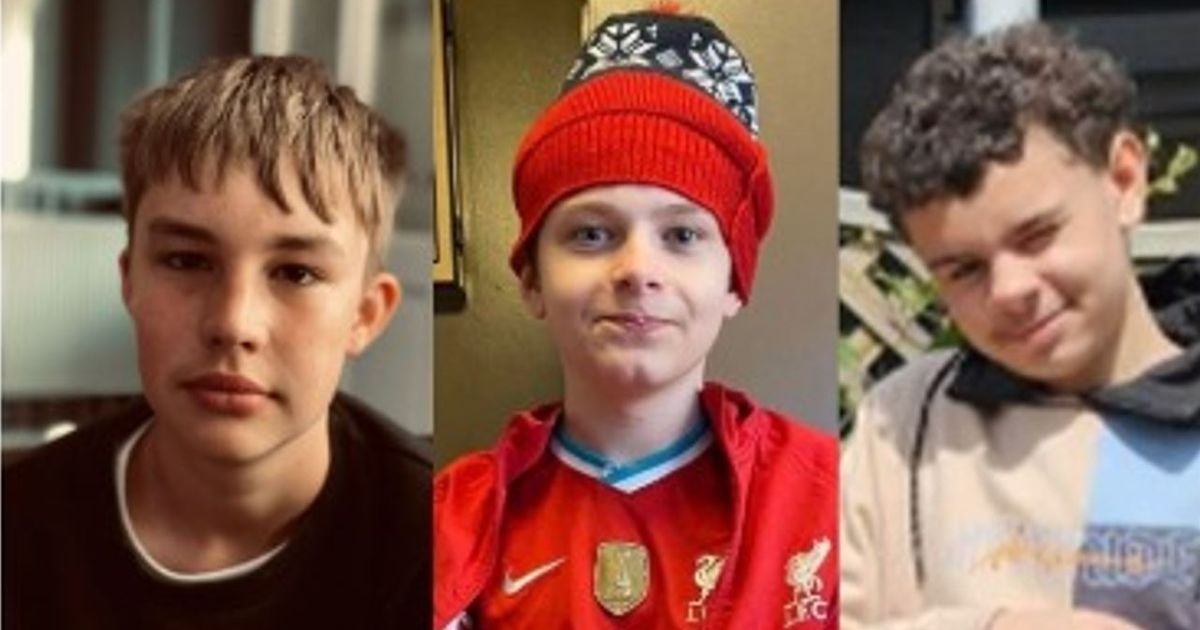A report has found those responsible for keeping children safe were not working together
11:00, 11 Sep 2025Updated 11:13, 11 Sep 2025
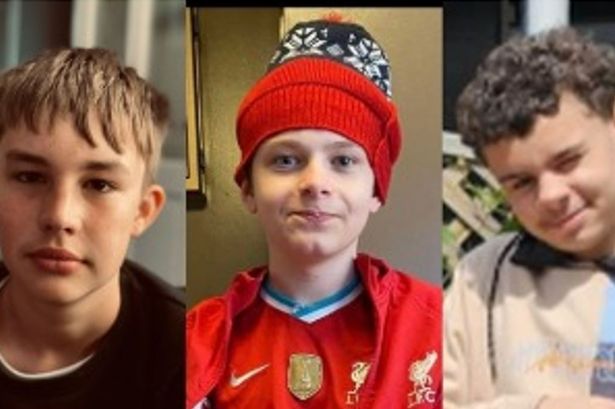 Max Dixon, Mason Rist, Darrian Williams(Image: Family handouts)
Max Dixon, Mason Rist, Darrian Williams(Image: Family handouts)
Teenagers who were killed in a spate of knife crime incidents at the start of last year in Bristol were ‘failed by the system and by the city’, their families have said, after the publication of a wide-ranging review into what lessons could be learned from their deaths.
An independent Thematic Review on Serious Youth Violence has been published which analysed what had gone wrong and what could be improved in the way schools, social services, city leaders, police and health chiefs tackle knife crime and young people.
The review was commissioned following stabbings in Bristol in the first two months of 2024, which saw the murders of Max Dixon and Mason Rist in Knowle West, Darrian Williams in St Judes and a serious attack in the city centre which left a fourth teenage boy with life-threatening injuries – all in the space of just a few weeks.
The review did not look directly at the causes and circumstances of the three different incidents, but spoke to the families of the victims, youth workers, teachers, social services, police, health and council chiefs about the wider issue of knife crime among young people in Bristol
It found there was a lack of joined-up working between the different agencies, the issue of school attendance, exclusion and children ‘slipping through the net’ by not attending any form of education was key to the problems, and there were too many forums, agencies, organisations, groups and different authorities working in the area with not enough people working together to support young people.
The review found information about children at risk, gathered by a range of different organisations from youth workers and teachers to police and social services, was not properly shared, so while good work was being done in places to support young people and prevent them from going down the route of gangs and knife crime, it was not joined up with poor communication.
The review, put together by two independent experts on behalf of the Keeping Bristol Safe Partnership, also highlighted the turbulence at the leadership of the city, pointing out that there had been five new executive directors for children and education at Bristol City Council in the five years leading up to the murders in 2024, and said ‘strategic instability has been highly impactful within children’s social care’.
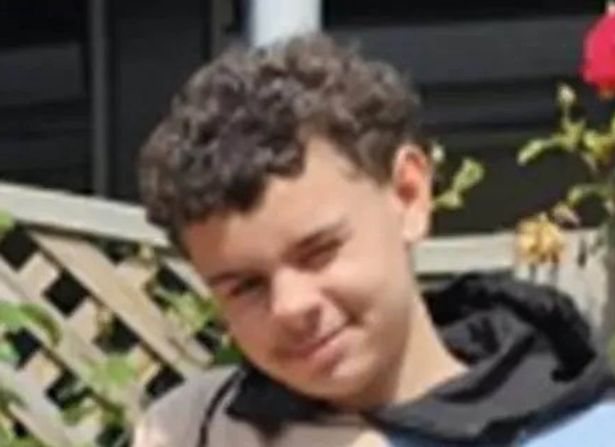 (Image: PA Media)
(Image: PA Media)
The family of Darrian Williams, who was stabbed to death in February 2024 by two other teenagers in a park, said they put the responsibility at the door of schools more than anywhere else. “It’s schools and education,” said Darrian’s sister Shanine Wright. “I personally believe that school exclusion should be completely illegal, if possible.
“It’s causing a lot of kids to be vulnerable because they’re not going to schools, they’ve been excluded, they’re going to alternative education. At the moment we have an issue with schools in that instead of working to stabilise the child, they are turfing them out of the door,” she added.
Shanine added that a key point in the report is that all 10 of the teenage boys involved in the attacks early last year – whether perpetrator or victim – had at some stage been excluded or spent time out of school.
“I think we have an issue where lots of organisations know exactly what’s going on in these young people’s lives, and no one has to work together. So you have the police, you have the social services, you have the health, you have parents, you have schools, all know that certain situations or certain children are not experiencing certain things, but no one is coming together to discuss the concerns around these young people.
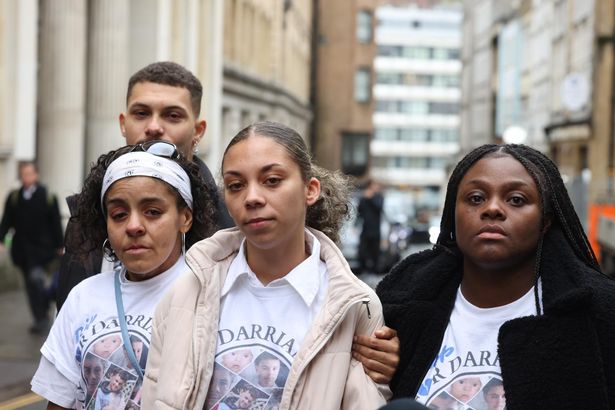 Darrian Williams’ family outside court after sentencing(Image: Paul Gillis)
Darrian Williams’ family outside court after sentencing(Image: Paul Gillis)
“There’s a system failure. Our young people are being failed by professionals due to lack of engagement with each other. All of the kids involved were known to multiple organisations. be the police, the social, be it them be in care, be it because they’d been removed from multiple schools, they’d been in other issues across the city. They were all known,” she said.
“It’s not just within the educational system. There’s blame within the social services, the police. There’s blame across the whole board, social media. It’s everywhere,” said Shanine. “It takes a village to raise a kid and a village to fail a kid.”
READ MORE: The powerful words on knife crime from the sister of Bristol’s latest lost boyREAD MORE: Killer’s rap videos boasting of Max and Mason murders revealed
The sister of Mason Rist, who was stabbed to death in a random attack outside his home in Knowle West by four teenagers from Hartcliffe at the end of January 2024, said she welcomed the report and the review as a ‘step forward’.
“I really appreciate the effort that has gone into making a review to tackle youth violence in Bristol following the loss of my brother Mason,” she said. “Speaking on behalf of my family I want to say that we are thankful for the time and effort that has gone into this review, it’s a positive step forward. We know that everyone involved in the review is trying to make a bad situation better.
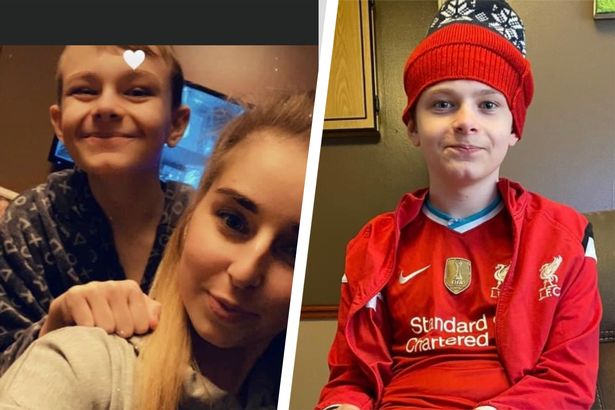 Mason Rist, 15, and his big sister Chloe(Image: The Rist family)
Mason Rist, 15, and his big sister Chloe(Image: The Rist family)
“Working in both private and public sectors within the NHS and now working in children services, I have my own personal experiences of finding services not communicating with each other and would love to see this made easier, so nothing is missed going forwards,” she added.
“After the loss of Mason, I have spoken to schools and have learnt that only now because of budget constraints they have employed a mental health counsellor to help children manage their emotions. I feel this is something which should always been in place and budgets for children should be made a top priority from the government,” she added.
The report criticises many aspects of the way young people are dealt with across all the different agencies, from criticism of the way different councils and authorities work across the different borders of the Bristol area, to the way they share information and work together to support young people.
It also said that too much focus on protecting children by police, councils, schools and social services had been around keeping them safe in the home – with a lack of focus on keeping them safe outside the home.
READ MORE: In pictures: Grieving families of Max and Mason share favourite photos of the boys
The report makes a seven-point action plan of recommendations around reducing exclusions from school, boosting attendance, improving support for children with special needs, and creating a ‘consistent multi-agency response’.
“There is still too little known by the partnership in relation to harm outside of the home for agencies to be able to frame an effective response,” the report’s authors Anna Racher and Caroline Boswell said. “One of the clearest consequences of this are the concerns that have been raised to this review in relation to disproportionality, adultification and biases that continue to be ‘baked into the system’ for children, young people and their families.
“More open curiosity and robust analysis is needed to underpin effective support and challenge across the partnership in relation to issues of equity, equality, diversity and inclusion,” they added.
The report has now been submitted to the Keeping Bristol Safe Partnership, which comprises of three statutory agencies – the police, the NHS and the city council.
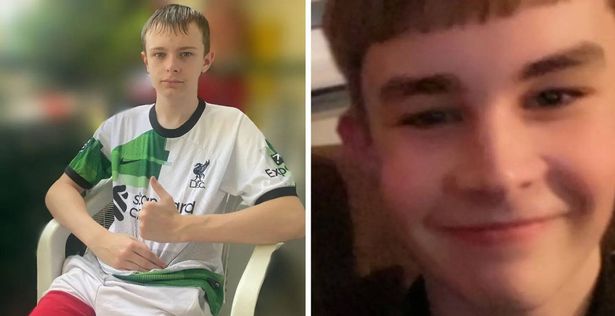 Max Dixon and Mason Rist had been friends since they attended nursery together(Image: PA Media)
Max Dixon and Mason Rist had been friends since they attended nursery together(Image: PA Media)
“We welcome the publication of this thematic review, which offers valuable lessons from recent and past incidents of serious youth violence,” said Sally Rowe, an independent scrutineer for the KBSP. “This review is not focused on individual children but rather on how we, as a partnership, can learn and evolve to better protect young people, particularly from harm experienced outside the home.
“Bristol is a youthful and vibrant city and safeguarding the wellbeing of children and families remains our highest priority. The death of any child or young person is a profound tragedy, and our hearts go out to the families and communities mourning these losses.
“The recommendations in this review serve as a welcome opportunity to bring our organisations closer together, focus our strategic efforts, and strengthen safeguarding actions. And we recognise the need to continuously evolve our approach and practice,” she added.
